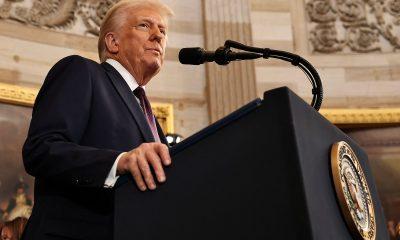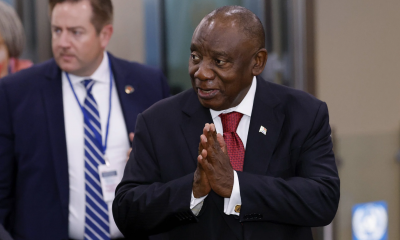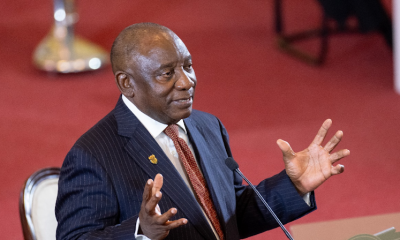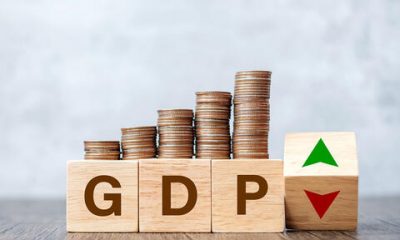Published
6 months agoon
By
zaghrah
South Africa must foster competent leadership and leverage private sector involvement to unlock its economic potential, according to Saki Zamxaka, Group CEO of the Gauteng Growth and Development Agency (GGDA). Speaking at the 11th SA-EU CEO Dialogue hosted by The European House – Ambrosetti, Zamxaka emphasized the need to build a $1 trillion economy by 2044, up from its current $400 billion.
Achieving this ambitious goal requires South Africa to sustain a 5% annual GDP growth rate over the next two decades or accelerate to 10% annually to meet the target in 10 years.
Zamxaka highlighted the importance of having qualified leaders in government to drive meaningful economic reform. Leadership must prioritize decisions that support growth, reduce inefficiencies, and encourage innovation.
The fiscus is under immense pressure, and the government cannot tackle infrastructure challenges alone. Zamxaka advocated for streamlined PPPs to involve private sector investment in sectors such as:
Unlike protracted traditional models, he emphasized efficient, impactful partnerships that benefit all stakeholders.
Private sector involvement hinges on policy reforms that ensure profitability for investors. This includes fair regulatory frameworks and concessions in historically state-controlled areas.
South Africa’s investment as a percentage of GDP stands at less than 15%, far below the necessary 25% required for growth.
According to Jacko Maree, Deputy Chairman of Standard Bank, achieving this would demand significant commitment and policy liberalization to attract local and foreign direct investment.
Ongoing infrastructure issues, such as delays in moving containers and unreliable energy supply, deter investors. Addressing these bottlenecks is crucial for making South Africa an attractive destination for foreign direct investment (FDI).
Zamxaka pointed out that over-reliance on the National Treasury is unsustainable. He advocated for innovative funding mechanisms, including leveraging historical state assets, licensing, and concessions.
Recent PPP initiatives involving Transnet demonstrate the potential for state-private sector collaboration to improve logistics infrastructure and efficiency.
While PPP projects in the energy sector often face delays, innovative solutions and private investments are beginning to emerge as viable alternatives to state-funded projects.
Former Finance Minister Trevor Manuel, now Chairman of Old Mutual, underscored that resolving infrastructural inefficiencies would significantly boost South Africa’s appeal to foreign investors. He noted that delays in logistics, such as container movements, are key deterrents.
South Africa’s economic future hinges on competent leadership, effective public-private partnerships, and a commitment to policy liberalization. These steps will enable the country to overcome its infrastructure challenges and achieve ambitious GDP growth targets, positioning itself as a competitive global player.
By fostering collaboration and creating an environment conducive to investment, South Africa can make meaningful progress toward building a $1 trillion economy.


KwaZulu-Natal Sets Stage for Investment Surge with May Summit on Public-Private Partnerships


Trump’s Inauguration: What It Means for Global Markets and South Africa


Ramaphosa Targets 3% Growth Amid South Africa’s ‘Big Four’ Challenges


Ramaphosa Calls on Business Leaders to Boost South Africa’s Economy


CEOs Predict Economic Recovery in 2025: Can South Africa Finally Turn the Corner?


Policy Uncertainty Deepens Amid Uneven Economic Recovery in South Africa















